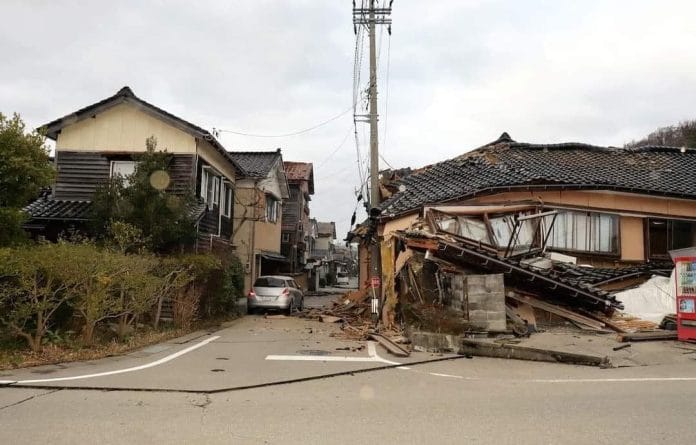The tsunami threat from a powerful earthquake that struck central Japan on Monday (Jan 1) has “largely passed”, a US agency said, after waves over a metre high had earlier hit some areas.
“The tsunami threat has now largely passed,” the Hawaii-based Pacific Tsunami Warning Center said.
A powerful earthquake struck central Japan on Monday, triggering warnings for residents to evacuate some coastal areas, knocking out power to thousands of homes and disrupting flights and rail services to the affected region.
The quake with a preliminary magnitude of 7.6 triggered waves of around 1m along parts of the Sea of Japan coast with a larger wave expected, public broadcaster NHK reported.
The Japan Meteorological Agency has also downgraded the alert from “major tsunami warning” to just “tsunami warning”. The initial warnings, issued for the coastal prefectures of Ishikawa, Niigata and Toyama, were the first major warnings since the March 2011 earthquake and tsunami that struck northeastern Japan.
A major tsunami warning means there is a possibility of waves of more than 3m.
Some houses have been destroyed and army units have been dispatched to help with rescue operations, top government spokesperson Hayashi Yoshimasa told reporters, adding that authorities were still assessing the extent of the damage.
More strong quakes in the area, where seismic activity has been simmering for more than three years, could occur over coming days, JMA official Toshihiro Shimoyama said.
In comments to the press shortly after the quake struck, Prime Minister Fumio Kishida also warned residents to prepare for more disasters.
“Residents need to stay on alert for further possible quakes and I urge people in areas where tsunamis are expected to evacuate as soon as possible,” Kishida said.
“Run!” a bright yellow warning flashed across television screens advising residents in specific areas of the coast to immediately evacuate their homes.
Japan’s Nuclear Regulation Authority said no irregularities have been confirmed at nuclear power plants along the Sea of Japan, including five active reactors at Kansai Electric Power’s Ohi and Takahama plants in Fukui Prefecture.
Agencies









